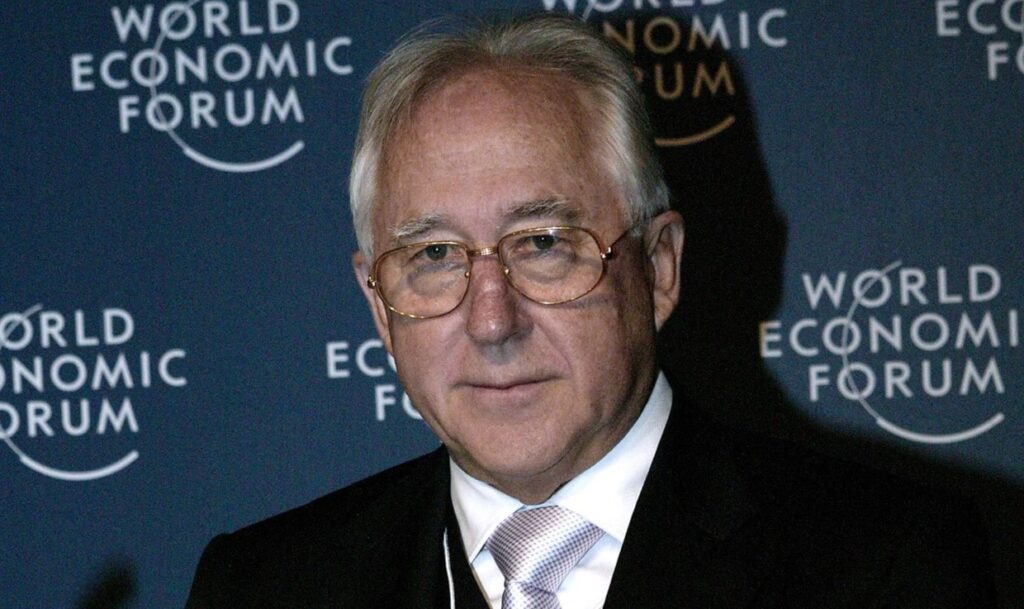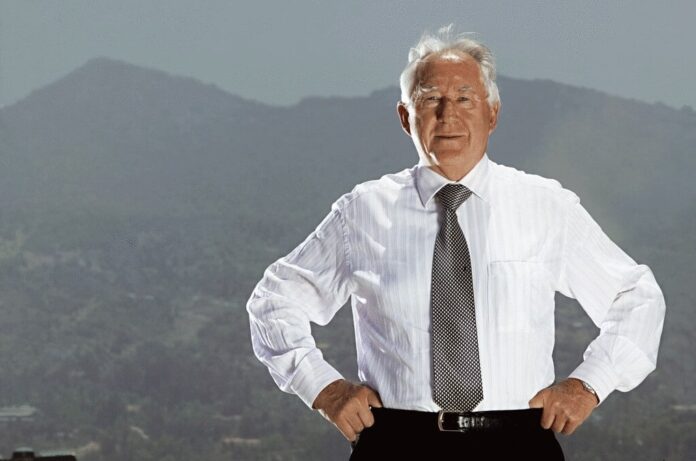One of the biggest retailers in Latin America, Cencosud, was founded and is chaired by Horst Paulmann, a German-Chilean businessman. His projected net worth is around $3.3 billion as of 2025. Paulmann began with a small grocery in Chile and worked his way up to build his empire. With operations in nations including Argentina, Brazil, Colombia, and Peru, he transformed Cencosud into a global powerhouse over the years. The retail scene in the area was revolutionized by his leadership and vision. Despite his enormous riches, Paulmann is renowned for keeping a quiet profile and putting a lot of emphasis on invention and company expansion.
Table of Contents
Horst Paulmann’s Family: Wife and Children Behind the Legacy
Cencosud’s rich creator, Horst Paulmann, has cultivated a close-knit family in addition to a corporate empire. He had many children with his wife, Helga Koepfer. His daughter Heike Paulmann and son Manfred Paulmann are two of them who have actively participated in the family company. In particular, Heike has carried on her father’s legacy by serving as the chairperson of Cencosud’s board. The Paulmann family continues to play a significant role in the operations and expansion of the business. They lead a somewhat discreet existence, concentrating on business, innovation, and upholding the family’s entrepreneurial spirit despite their riches and power.
Early Life and Immigration
Horst Paulmann Koepfer was born in Kassel, Germany, on March 22, 1935. Like many others, his family had to deal with the harsh reality of a nation devastated by war in the wake of World War II. The Paulmann family moved to Chile in 1946 in search of a brighter future in South America. The family had to start over during the difficult early years. Horst’s values—hard labor, perseverance, and a profound awareness of human needs—were profoundly influenced by his early experiences.
Paulmann started out in tiny family-run companies with his father and brothers. In Temuco, Chile, they first opened a small eatery that ultimately became a grocery. Paulmann started to comprehend the importance of supply chains, retail dynamics, and customer service at this time. Later on, these formative experiences would act as the template for creating an empire in business.
The Birth of Cencosud
Horst Paulmann established Centros Comerciales Sudamericanos, or Cencosud, in 1978 with the audacious goal of building a cutting-edge, customer-focused retail organisation that could contend on a worldwide basis. In Santiago, Chile, he established the first Jumbo hypermarket, fusing department store and supermarket ideas under one roof. Chileans’ shopping experiences were completely transformed by this model, which at the time was still relatively new in Latin America and established new benchmarks for retail in the area.
Paulmann’s distinctive business strategy placed a strong emphasis on ongoing innovation, long-term investment, and vertical integration. In contrast to many of his rivals, who solely concentrated on local business, Paulmann had a regional vision from the start. Because of his belief that Latin America was ready for contemporary retail, Cencosud swiftly grew outside of Chile to include Argentina, Brazil, Colombia, and Peru.
Some of the most well-known retail brands in the area are currently part of Cencosud’s portfolio, such as Santa Isabel (supermarkets), Paris (department stores), Easy (home renovation), and Jumbo (hypermarkets). One of the most varied and vertically integrated retail businesses in Latin America, the firm also runs shopping malls and financial services.
A Strategic Thinker and Innovator
Horst Paulmann’s strategic vision is a major factor in his long-term success. He saw early on that competitiveness required supply chain control, from sourcing and shipping to sales and customer service. Cencosud had more flexibility and cost control thanks to this vertical integration, particularly in an area renowned for its unstable economy and difficult regulations.
Paulmann accepted the value of infrastructure as well. He started the construction of Santiago’s Costanera Centre, a mixed-use business complex that features the highest building in South America, in 1993. The Costanera Centre gradually opened and began to represent Chile’s contemporary economic goals in spite of setbacks and economic uncertainty. It not only demonstrates Paulmann’s drive but also his dedication to long-term planning over immediate benefit.
Horst Paulmann: Visionary Entrepreneur of Latin American Retail

Horst Paulmann’s transformation from a German immigrant to one of the most powerful businessmen in Latin America is a tale of fortitude, tenacity, and willpower. He transformed retail in the area as the founder of Cencosud, creating a massive empire that includes supermarkets, shopping centres, and home improvement businesses in many nations. In addition to influencing millions of people’s purchasing experiences, his leadership established new benchmarks for corporate innovation. Paulmann’s influence will last for centuries because his family is already actively carrying on his legacy. His narrative serves as a potent illustration of how drive and perseverance can change both businesses and people’s lives.



